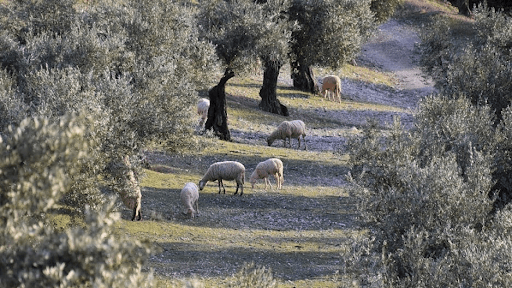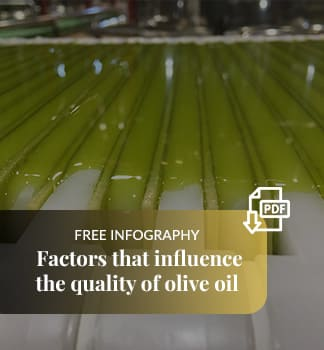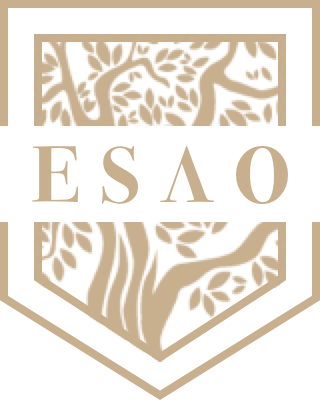Listen to this article
An ecological olive grove is one in which the management tries to be sustainable and respectful with the environment. Said management will be demonstrable through a certifying company.
Synthetic chemicals, such as most phytosanitary products and fertilizers, are not allowed in the organic olive grove.
The fertilizers and phytosanitary products allowed in the organic olive grove will be those that have been obtained without industrial chemical processes, and of course they do not pollute or leave residues in the environment or in the harvest.
Management of the organic olive grove
The management of the olive grove, whether conventional or ecological, is based on hierarchical laws, which must be complied with as much as possible to obtain the best profitability from the exploitation.
In an organic olive grove, the productive principles are exactly the same as in the conventional olive grove, only that some productive tools cannot be used, such as most herbicides, synthetic fungicides, synthetic insecticides and fertilizers. It will be necessary to look for an efficient management, with the available tools.
Under proper ecological management of the olive grove, the productivity of an ecological olive grove should not be less than that of a conventional olive grove; in some cases, it may even be higher.
However, the production costs are higher, especially in the short term, since the banned synthetic phytosanitary products allow controlling pests and diseases in a much more efficient and economical way than the means available in organic farming. However, each olive grove is different.
Let us remember that the olive tree is grown in the same distribution area as the wild olive tree, so the crop is perfectly adapted to the environment, and the incidence of pests and diseases can be very low in many olive groves, being the need for inputs synthetic chemicals, minimal.
Productive Variables
Water and sun exposure
The main variable in the cultivation of the olive tree, consists of maintaining each olive tree without great water or light limitations, mainly due to competition with other olive trees or due to an excessive volume of the glass, either of each individual, or considering the total of the plot.
This variable has nothing to do with synthetic chemicals, but with the framework, pruning and soil management, so there are no differences between organic and conventional olive groves.
Pruning
With an olive tree having a good frame and crown volume, the next most important productive variant is pruning, which adapts the olive tree to the harvesting method, in addition to optimizing lighting and the leaf / wood ratio. There are also no differences between organic and conventional olive groves regarding this variable.
Soil management
The third productive variable of the olive grove would be soil management, which should seek to maximize infiltration and reduce soil moisture losses due to capillarity and transpiration of spontaneous grasses.
In soil management there are already differences between organic and conventional cultivation, since herbicides are not allowed in organic olive groves.
You must have the best possible soil management, depending on the farm, combining clearing (either mechanical or by livestock) with tillage. The result on many farms can be as good or even better than using herbicides.
Harvest
The fourth productive variable of the olive grove is harvesting, which should not be harmful or excessively late. A late or very aggressive harvest could compromise the return harvest. There are no differences between conventional and organic farming here.
Phytosanitary treatments
The fifth productive variable in the olive grove would be the volume of broth used in phytosanitary treatments, it must be correct. There are no differences between organic and conventional olive groves.
Nutrition and Health
This is where the main differences between organic and conventional olive groves are found. For nutrition, many commercial fertilizers are not allowed, such as synthetic nitrogens. This nutrient must be provided by organic sources, through animal and vegetable waste. Although the nitrogen unit from organic matter is more expensive than from chemical fertilizers, with a rational contribution of organic amendments, the nitrogen nutrition of the olive tree can be satisfactory, and the costs are not so different.
As for the phytosanitary products for foliar use, the most used in the olive grove are fungicides and insecticides.
Preventive fungicides based on copper and sulfur are authorized in organic olive groves, but eradicating systemic curative fungicides are not..
Prevention
Therefore, in the organic olive grove, prevention must be very efficient, since there are no chemical means available to control already established infections. However, in many olive groves the microclimate is not very conducive to fungi and bacteria, so with preventive treatments and a good olive grove pruning strategy, there are no significant economic losses due to these agents in the ecological olive grove.
Use of insecticides
Regarding insecticides, some of natural origin are authorized in the organic olive grove, but almost the entire strategy used in the organic olive grove against insects is based on prevention with repellent products. In the same way, in farms with microclimates that are not very conducive to pest insects, there are usually no significant production losses in the organic olive grove.
Key points
As a summary, when we talk about what an organic olive grove is, we will take into account the following points:
- Most aspects of the management of the organic olive grove are the same as those of the conventional olive grove
- It is more expensive to produce organically, but there is a better remuneration for the oil, apart from possible production aids. An efficient producer in a farm with few phytosanitary problems, has a higher profitability in organic than in conventional.
- On farms with few pest and disease problems, there are usually no major differences between organic and conventional management.
Regarding fertilization, with a good program that combines organic materials and natural fertilizers, the nutrition of the olive grove can be similar between ecological and conventional.
.png)






